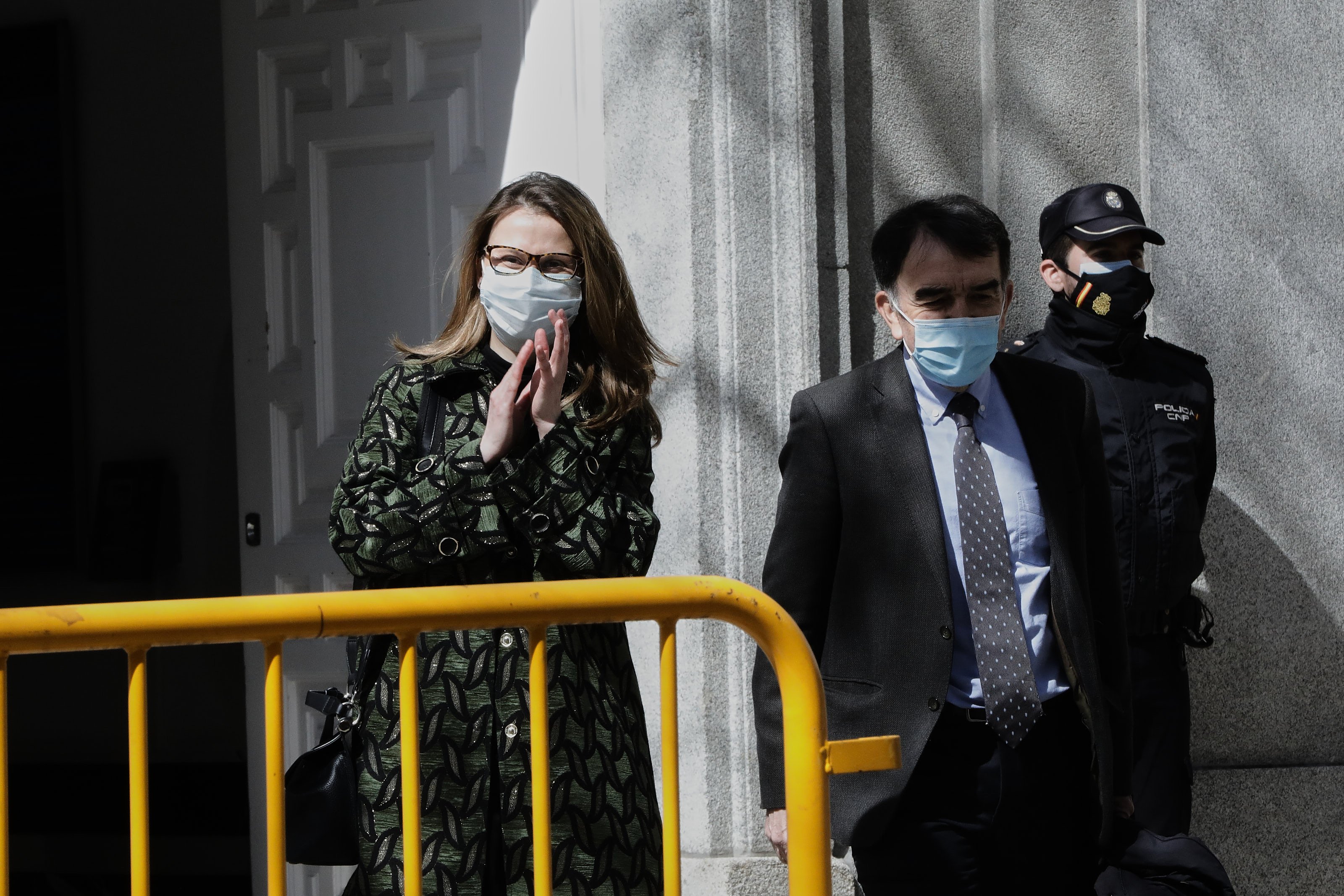The criteria, a la carte. The criminal chamber of the Spanish Supreme Court has issued a ruling today to send former the Catalan minister of agriculture and current deputy for ERC, Meritxell Serret, to stand trial for an alleged offence of serious disobedience over the 2017 Catalan self-determination referendum. Furthermore, it has agreed to send the case to be heard in the High Court of Catalonia (TSJC), considering that that court is competent for her prosecution, since she faces no accusations over misuse of public funds in the organization of the 1st October referendum. The Supreme Court thus maintains the criteria it used with members of the Bureau of the Catalan Parliament in 2017, who were tried only for disobedience, and also before the Catalan court - and convicted. On the other hand, the speaker of the Catalan Parliament, Carme Forcadell, was tried by the Supreme Court and sentenced to 11 and a half years in prison for sedition, and after three years in prison she was pardoned, as with the rest of the nine political prisoners.
In its resolution, the Supreme Court recalls that the public prosecutors, the Spanish state solicitors and the private prosecution carried out by the Vox political party all requested the confirmation of the investigative conclusion of the case against Serret, released by judge Pablo Llarena, on May 6th, 2021, and the opening of a trial against Serret only for alleged disobedience. When the case reaches the TSJC, the three prosecutions will have to file their indictments, which in the case of an offence of disobedience involve a ban on holding public office.
Controversy
A controversial legal point, which the Catalan pro-independence leaders tried in 2019 have already presented in appeals to the European Court of Human Rights (ECHR), is that the Spanish Supreme Court decided to hear the case against the 12 Catalan politicians and activists, when they had demanded to be tried by the TSJC, as set out in the Catalan Statute of Autonomy. The Supreme Court indicated that, because there was an invoice issued abroad pertaining to the case, it fell to the court in Madrid.
Serret returned from exile on March 11th, 2021, a year and a half after the Supreme Court's verdict of October 14th, 2019, knowing that her government colleagues who had not faced accusations of referendum spending were acquitted of misuse of funds charges and convicted of disobedience, and sentenced to bans from public office which they have now completed. These were the ministers Carles Mundó, Meritxell Borràs and Santi Vila.
The TSJC will now have to set a date for the trial of the current ERC deputy, while it also has to set a date for two other trials of pro-independence politicians: that of the second Bureau of Parliament for supposed disobedience of the Constitutional Court, and the case of the current ERC MPs Josep Maria Jové and Lluís Salvadó for their alleged roles in the 2017 referendum.

